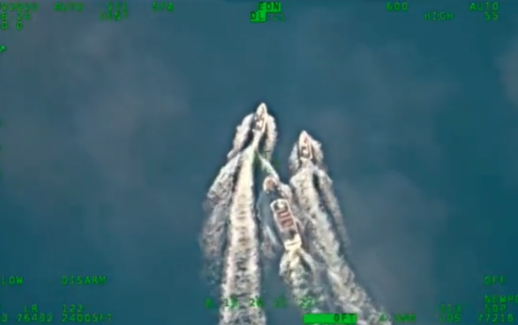Russian, Chinese, and proxy troll networks have been falsely blaming the U.S. military industrial complex (MIC) for Putin’s war of aggression against Ukraine and to divert attention from Xi Jinping’s transformation of China into something of a divine emperor cult. These dictators act as if World War 2 and the holocaust never happened and as if the U.S. did not earn its place in the post-WW2 world. If the U.S. had remained isolationist, Moscow would have fallen to Hitler and China to Emperor Hirihito. Yet the dictators persist with feeding their people and the world repeat lies, deceptions, and delusions.
Remember: the Russian Federation recognized Ukraine’s independence during the Yeltsin Administration. When Putin and his KGB-underworld peers engineered Yeltsin’s resignation by late 1999, they reversed Russia’s commitment and became obsessed with attacking Ukraine with gray and conventional warfare.
The U.S. military industrial complex (MIC), the U.S., NATO, and Ukraine did not choose for Putin and his ex-KGB beneficiaries to do all of that, especially after Russia’s recognition of Ukraine’s independence. They did not expect Putin to attack Chechnya a second time, Georgia, Syrian populations, and then invade Ukraine. They did not ask Russia to poison and assassinate Russians and Ukrainians on others’ sovereign territory nor for the non-Russian casualties Moscow caused. Nor did they ask Xi and Putin to use Iran and North Korea as indentured servant-proxies to help keep Xi and Putin in power at home. Putin caused many former Soviet Republics to seek NATO membership by his hostility.
Ike’s warning remains a bedrock principle of unfinished, centrist statesmanship needed to reform (1) corruption and deception in lobbying; (2) to sustain higher accountability and competition to meet the needs of all missions, troops, and the public; and (3) transform the Pentagon in the way of the mythic Phoenix, sending it back to bootcamp to reemerge as an effective and efficient command and control group. Recall Ike’s Farewell Address:
The circumstances of Eisenhower’s warning were a more self-sufficient United States with a resource-rich mining, steel milling, and factory-flush production capacity with lots of room to grow. Today, much of that has been slowly outsourced over time to China and elsewhere for a cheaper material consumption experience that the U.S. business sector and its lobbyists profited from, shaping in part a consumer economy that has sickened Americans with excess.
Seeing today’s conditions, Ike would more likely be calling for the MIC to get stronger, more secure, more self-sufficient, diversely competitive, more innovative, and for the American people to step away from excess and get back to their senses to reestablish improved foundations of American civilization: healthy family relationships, bonding, friendship, ethics, morals, good faith, quality education, health, work ethic, outdoors, community contribution, immigration, and personal, not virtual human relationships.
The dictators seeking to re-litigate the 20th Century in the 21st have depended on the slow shift in production capacity to China, and on the USA’s slow drift to hubris, demoralization, isolation, confused personal identity, and agitative division. These trends were not Ike’s or George Washington’s imagined future but rather the dictators’ imagined future.
If the people of the USA would remain free, they will insist on pruning non-statesmen from candidacies and electing statesmen with the centrist, balanced national visions that Presidents Eisenhower and Washington addressed when they each said farewell to the people of their own times.

